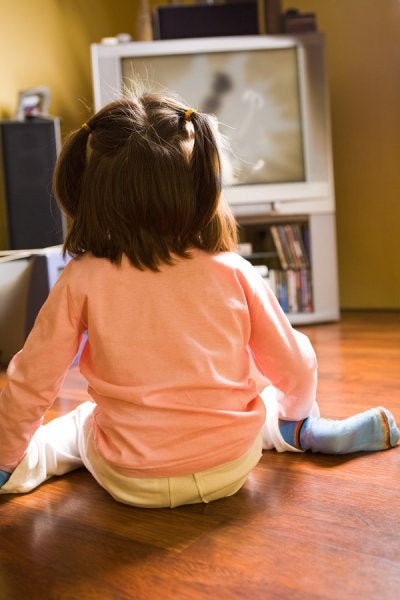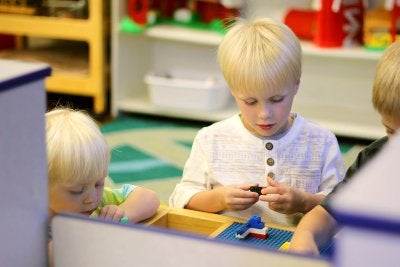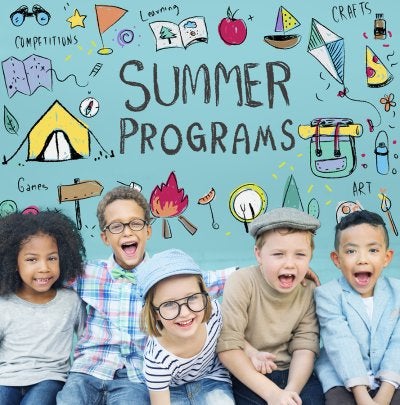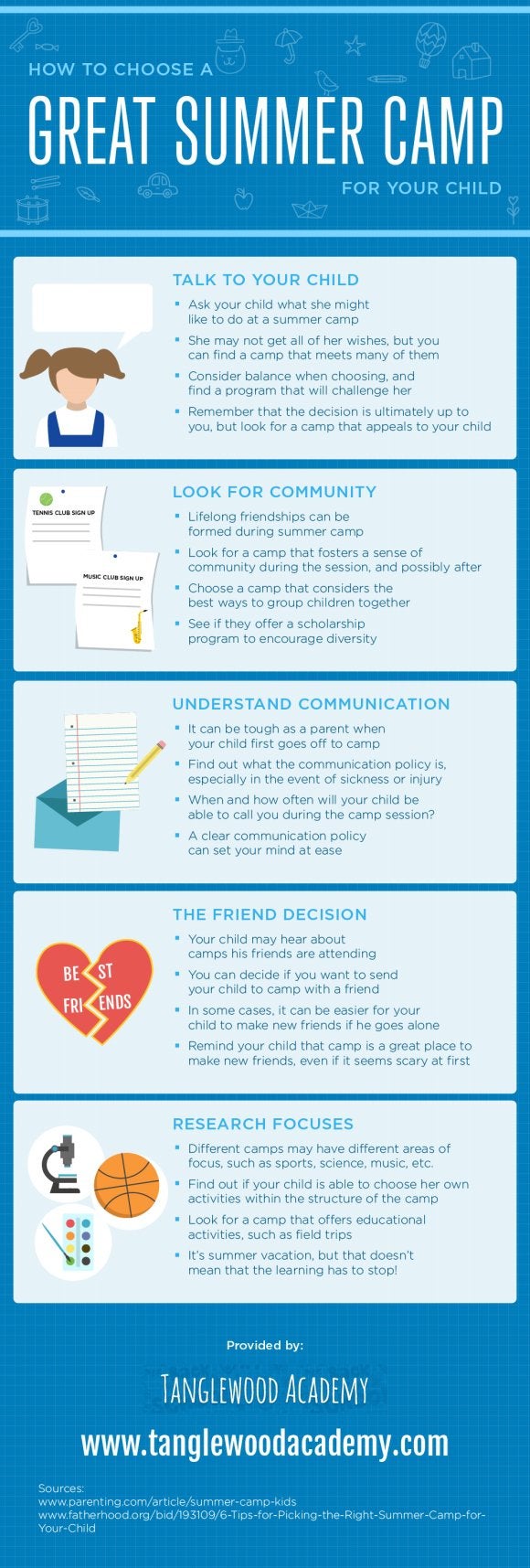-
Try These Sensory Activities at Home
Sensory activities are important to help your children explore their curiosity, learn more about their world, and develop critical thinking skills. Many of the activities found in the attached video can be done at home, in an afterschool program, or early childhood learning center near Pembroke Pines . Here is a better look at some fun and creative sensory activities to do with your children:
- Gather small toys that your preschool age child will love. Freeze the toys, in layers, and give your child some tools to break through the ice. This is a fun experience that can teach your child patience.
- Cook up pastas and have your children add food coloring. This creative exercise will teach them how to mix colors to make new colors.
- Place ivory hand soap into the microwave, and it will come out in interesting shapes that your children can touch and add coloring to.
-
Does Your Child Get Too Much Screen Time?
One issue that today’s parents have to face much more than in the past is the question of screen time. Experts believe that spending too much time in front of a screen can damage early childhood development and make learning more difficult. Here is what you need to know about screen time and your child’s education and how limiting screen time can protect your child’s development in Pembroke Pines.

Defining Screen Time
In a world where we are constantly surrounded by digital technology, defining “screen time” is more difficult than ever. Furthermore, children are often expected to use computers in school and for homework. The experts of the American Academy of Pediatrics defines screen time as time spent using a digital device for entertainment purposes, so using a computer or other device for an academic exercise doesn’t count. However, it is more important to be in tune to how your child responds to being in front of a screen than to rate what activities count as entertainment and which do not.
Age-Related Recommendations
The American Academy of Pediatrics says that children should not have any screen time between birth and 18 months, as it can cause overstimulation, distress, and a disconnect between children and parents. Children aged two to five can have one hour of screen time per day. For children and teens six and older, screen time should be determined by parents based on the child’s overall behavior and the amount of time he or she has left in the day after all other needs and responsibilities are met.
Choosing the Right Screen Time
Some screen time can actually aid in child development. For instance, interactive tools such as Skype can be helpful for young children as they help them practice language and other skills. In other cases, apps can help children practice numbers, shapes, sounds, and letters. For healthy child development, limit the amount of screen time that is spent passively watching a show or movie—and that includes commercials that can over-stimulate a young child.
-
A Quick Look at Our Summer Day Camp
At Tanglewood Academy, our summer day camp is designed to help kids get the most out of their summers while giving parents the opportunity to maintain their own responsibilities without worrying about child care and keeping kids entertained. Like our after-school programs, Tanglewood Academy’s summer camps in Pembroke Pines are built around fun learning activities to keep bodies and minds on the go during the summer months.
Our summer day camp features benefits like low counselor-to-student ratios, educational field trips, and plenty of bonding opportunities for kids to positive friendships that can last for years to come. Both physical and cognitive activities are on the agenda daily, so kids get a chance to work out their bodies and their minds. The skills and relationships kids build at our summer day camp will benefit them both in and out of the classroom when school is back in session. Talk to a camp counselor or other staff member to find out if Tanglewood Academy camp could be right for your child.

-
A Look at Our First Grade Programs
At Tanglewood Academy , we offer challenging early childhood education programs for kindergartners, preschoolers, and first graders in Pembroke Pines. Our comprehensive first grade program focuses on teaching children first grade math, first grade reading, geography, American history, science, economics, and creative expression. Because our first grade program is so diverse, your child will receive an early childhood education that will better prepare him for his future schooling.
Our early education program for first graders is designed to foster both academic and life experiences. We encourage parent and community involvement in the school and the early childhood education programs. Our early childhood learning center is home to a small population of kindergartners, preschoolers, and first graders of diverse backgrounds, ethnicities, cultures, and religions. Your child will learn how to communicate and work with many different children.
We have a very low student-to-teacher ratio, so each child in our first grade classroom receives individualized attention and instruction. We can accommodate a variety of learning styles, and strive to ensure that your child’s needs are met. We also offer after school programs and summer camps for kids that extend their learning period and encourage the growth of important child development skills.

-
Encouraging Self-Help Skills in Your Pre-K Student
At around preschool age, or age two, your child should begin exhibiting signs of independence. You can help your child become more confident in his independence, self-reliance, and ability to self-soothe and help himself by enrolling him in a pre-kindergarten program near Pembroke Pines. Here are some other ways that you can encourage self-help skills in your pre-k student:

Allow him to dress and groom himself.
The first steps that you can take to encourage your child’s independence are to allow him to dress and groom himself. Let him pick out the clothes that he wants to wear to preschool or pre-kindergarten each day. Encourage him to tie his own shoes and button his shirts and pants. Try to build up to the stage where your preschooler can wash his hands on his own by putting a stepstool in the bathroom or kitchen, and providing an easy-to-use soap dispenser. You can also encourage him to brush his own hair and wash his own face.
Suggest that he clean up his own toys.
Prior to preschool or pre-kindergarten age, your child may have relied on you to clean up after him. By the time he begins preschool at an early childhood learning center, he should know how to clean up his own toys. Throughout his early childhood education, your child will be expected to put away the toys and materials he used during classroom activities. Stay firm at home when your child leaves a mess, and resist the urge to give in and clean it up for him. A huge part of helping your child fully develop independence and self-reliance is encouraging him to learn how to complete basic life skills on his own from a young age.
Prompt dialogue about feelings and needs.
Your child will be better at helping himself and self-soothing if he understands his feelings and knows how to talk about his needs. Don’t shy away from creating a dialogue with your preschool-aged child about how he is feeling, and how he can ease feelings of discomfort, anger, frustration, or sadness.
-
Helping Your Child Prepare for Summer Day Camp
Summer camp in Pembroke Pines is a great way to ensure that your child has access to enrichment opportunities , supervised playtime, and other fun summer activities for kids. If this will be your child’s first experience at summer camp, it’s important to understand that he or she may feel a little nervous. You can help your child embrace the summer camp experience by letting him or her know what to expect. Contact the summer camp staff to inquire about activities or field trips that may be planned for your child’s particular program. Then, discuss these activities with your child and emphasize how much fun he or she will have.
Day camps do not require the extensive packing that overnight camps do; however, your child may need to bring snacks and a few personal items. The evening before camp, you can guide your child in choosing an outfit and getting together personal items to take. When you drop off your child at the camp, remind him or her of the time that you’ll be back.

-
How Summer Day Camp Helps Kids Build Social Skills
Enrolling your kids into a summer camp in Pembroke Pines can do more for their development than simply getting them out of the house. Your kids will gain lifelong memories as they engage in various summer camp activities. They will also learn much-needed social skills that will follow them throughout their life.
They Are Surrounded by Age-Appropriate Peers
 During the school year, your kids are surrounded by their peers, but the experience in summer camp is a little different. Kids are having fun and participating in various games with other children every day—an experience they may not regularly receive during the school year. Kids are also exposed to other children around the same age as them, though some might be older or younger. Often, summer camps group children by a grade or age range. Giving your kids exposure to children of different ages can help them learn more social and emotional skills.
During the school year, your kids are surrounded by their peers, but the experience in summer camp is a little different. Kids are having fun and participating in various games with other children every day—an experience they may not regularly receive during the school year. Kids are also exposed to other children around the same age as them, though some might be older or younger. Often, summer camps group children by a grade or age range. Giving your kids exposure to children of different ages can help them learn more social and emotional skills.They Engage in Group Activities
Part of the fun of a kids’ summer camp is being able to engage in activities and games with friends. By playing with old friends and new acquaintances, kids can better learn how to follow rules and interact with peers in an appropriate manner. They also learn how to be on a team and solve problems with each other. These lessons, and many more, all come from group activities that will influence your kids for the rest of their lives.
They Meet New People
Some kids may be inherently shy when meeting new people. Whether they are meeting new adults or kids their age, some kids may not know how to start up a conversation or ask for help from someone they do not know. Through various summer activities for kids, summer camp helps kids become more involved with others they may not know. This interaction can help alleviate some of the stress shy or introverted kids might feel when meeting new people.
-
Choose a Great Summer Camp for Your Child
Summer is just around the corner, which means that your child will soon have days free from his normal school schedule. If you don’t yet know what your child will be doing this summer, it’s not too late to look into summer camps in Pembroke Pines . Talk to your child to find out what sort of camp he might be interested in, and what he’d like to learn over the summer. A great summer camp will make learning fun through activities and educational field trips. Your child may want to attend a camp with his friends, but remind him that summer camp is a great place to meet new and interesting people, too. Check out this infographic to learn more about how to choose a great summer camp for your child this year.

-
Smart Strategies for Keeping Kids Busy This Summer
Once school is out, parents are sometimes at a loss for how to keep their kids busy over their break. If you’re looking for summer activities for kids in Pembroke Pines, there are several smart strategies available.
Day Camp
For children and parents who aren’t interested in an away camp, summer day camp offers an excellent solution. Day camp keeps your child busy, active, social, and having fun over their break from school while providing adult supervision.
Athletics
 If given the choice, many kids will spend the summer sleeping in every morning and sitting in front of the TV or game console throughout the day. If you’re worried about your children becoming sedentary over the summer, an easy prevention strategy is to sign them up for a sport of their choice. Swimming lessons are fun, educational, and fitting for summer. Martial arts classes inspire discipline and teach self-defense, and basketball and baseball are always popular choices that encourage competition and teamwork.
If given the choice, many kids will spend the summer sleeping in every morning and sitting in front of the TV or game console throughout the day. If you’re worried about your children becoming sedentary over the summer, an easy prevention strategy is to sign them up for a sport of their choice. Swimming lessons are fun, educational, and fitting for summer. Martial arts classes inspire discipline and teach self-defense, and basketball and baseball are always popular choices that encourage competition and teamwork.Outdoor Activities
Summer is the ideal time for getting outdoors and experiencing nature. If you garden, try getting your children involved as well. Giving them a small plot to cultivate will provide a great sense of accomplishment once the seeds that they plant begin to grow. Camping is a popular summer activity for people of all ages. Plan ahead to schedule a weekend or two for your family to go camping together which will get your kids out into nature where they can explore and have fun. For busy families, day trips to the woods and hiking adventures are an easy way to spend time together and stay active while enjoying the summer weather.
Reading Programs
Studies have shown that kids who read over the summer do better in school the following semester. Some teachers believe that when kids keep their minds active over the summer, that they can more easily return to their regular studies. Contact your local library to learn if they offer summer reading programs for children.
RECENT POSTS
categories
- Uncategorized
- Early Learning Center
- Pre-K
- Children
- Child Care Center
- Preschooler
- Preschool Blog Category | Tanglewood Academy
- Preschool Lunch
- Tanglewood Academy
- After-School Program
- Toddler School
- Early Childhood Education
- preschool activities
- pre-kindergarten
- childhood education
- pre-kindergarten programs
- Children’s education
- enrichment opportunities
- Kindergarten
- Nurturing Education Environment
- Toddler Care
- Child Separation Anxiety
- Toddlers
- Summer camp
- summer activities
- VPK
- Voluntary Pre-K
- Outdoor Activities
- Smart Strategies
- Tie Shoes
- Snacks
- Physical Activities
- Education
- Enrichment Activities for Kids
- Early Education Activities
- Preschool Curriculum
- Classroom Learning
- APPLE accreditation
- Language Comprehension
